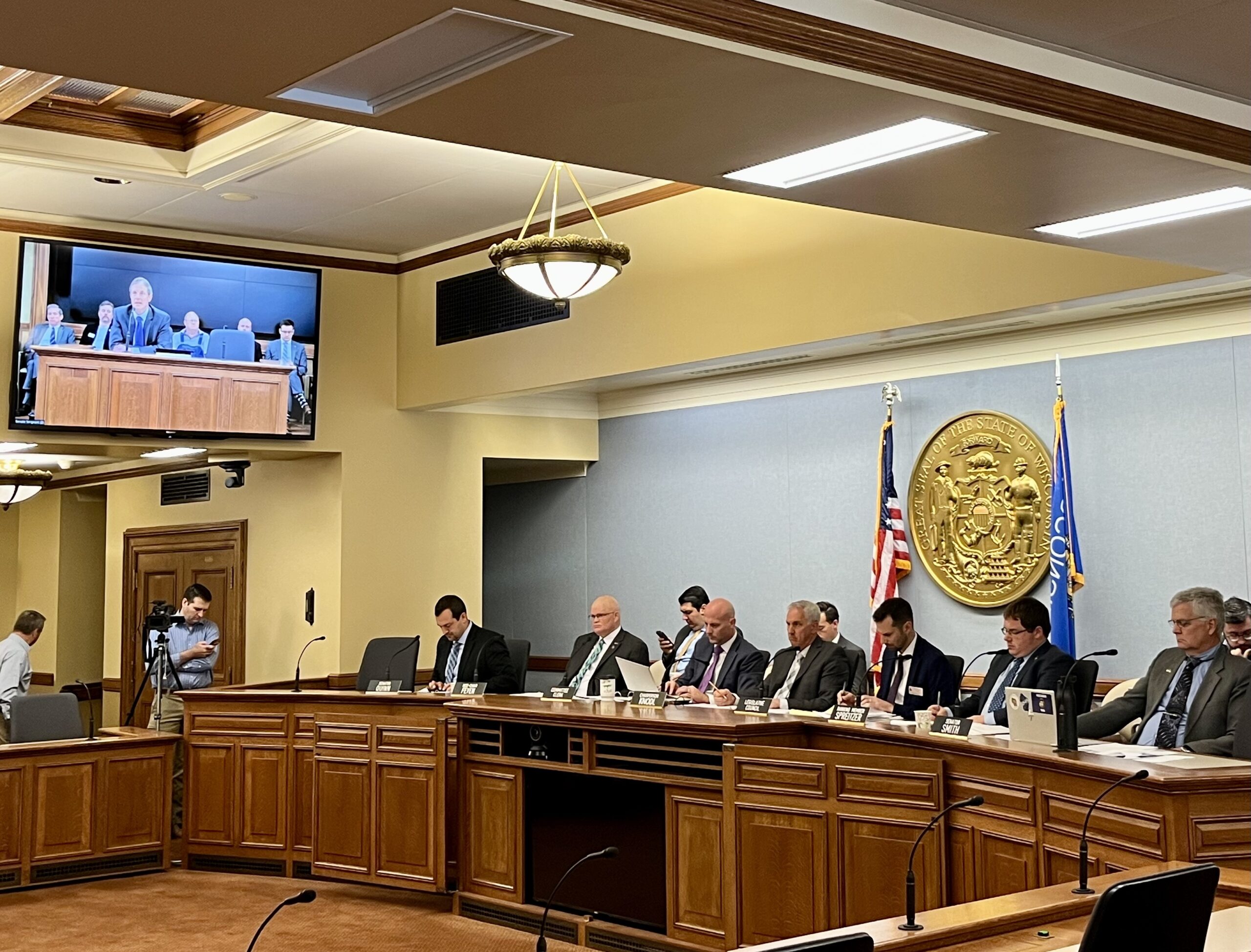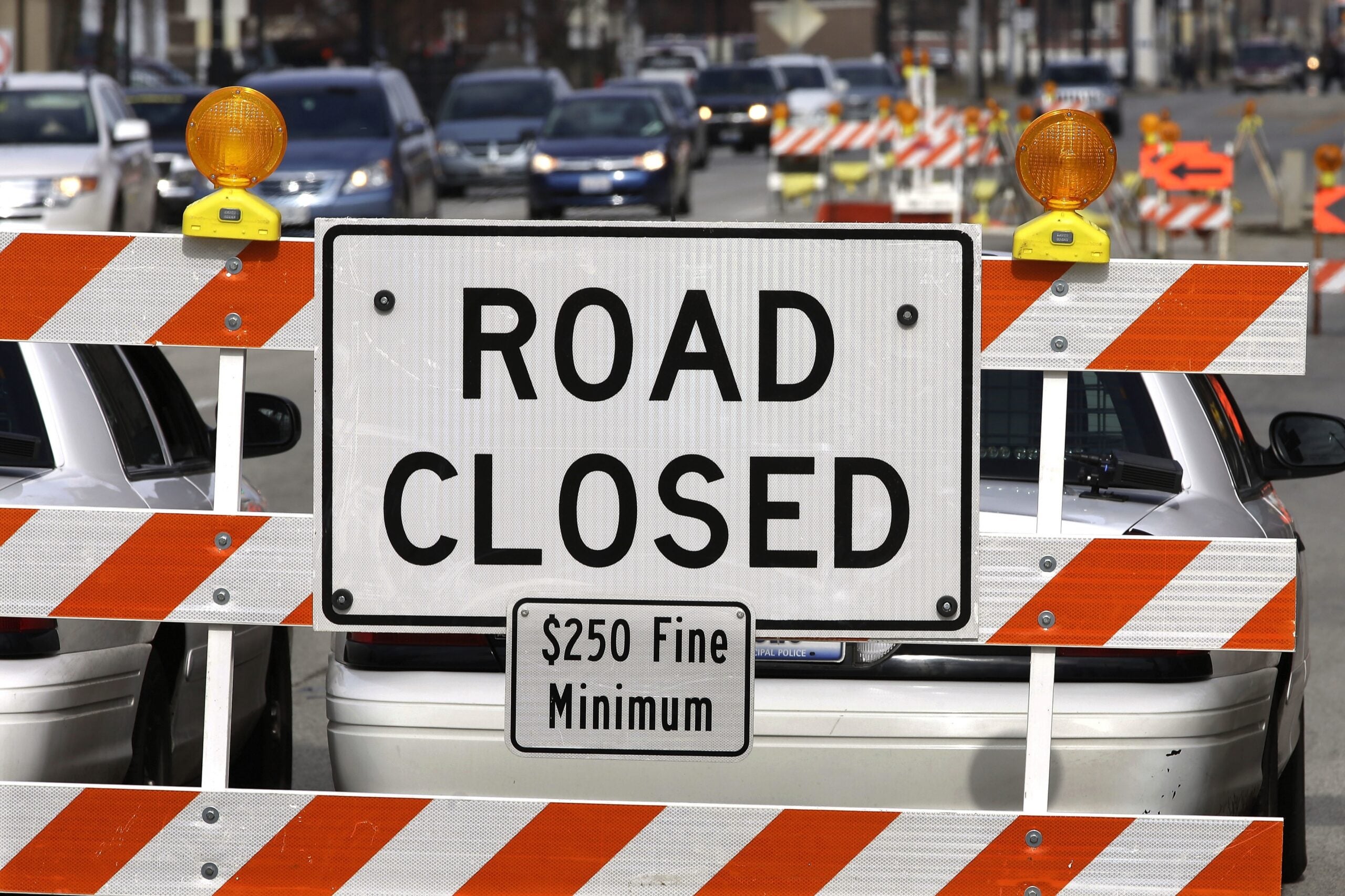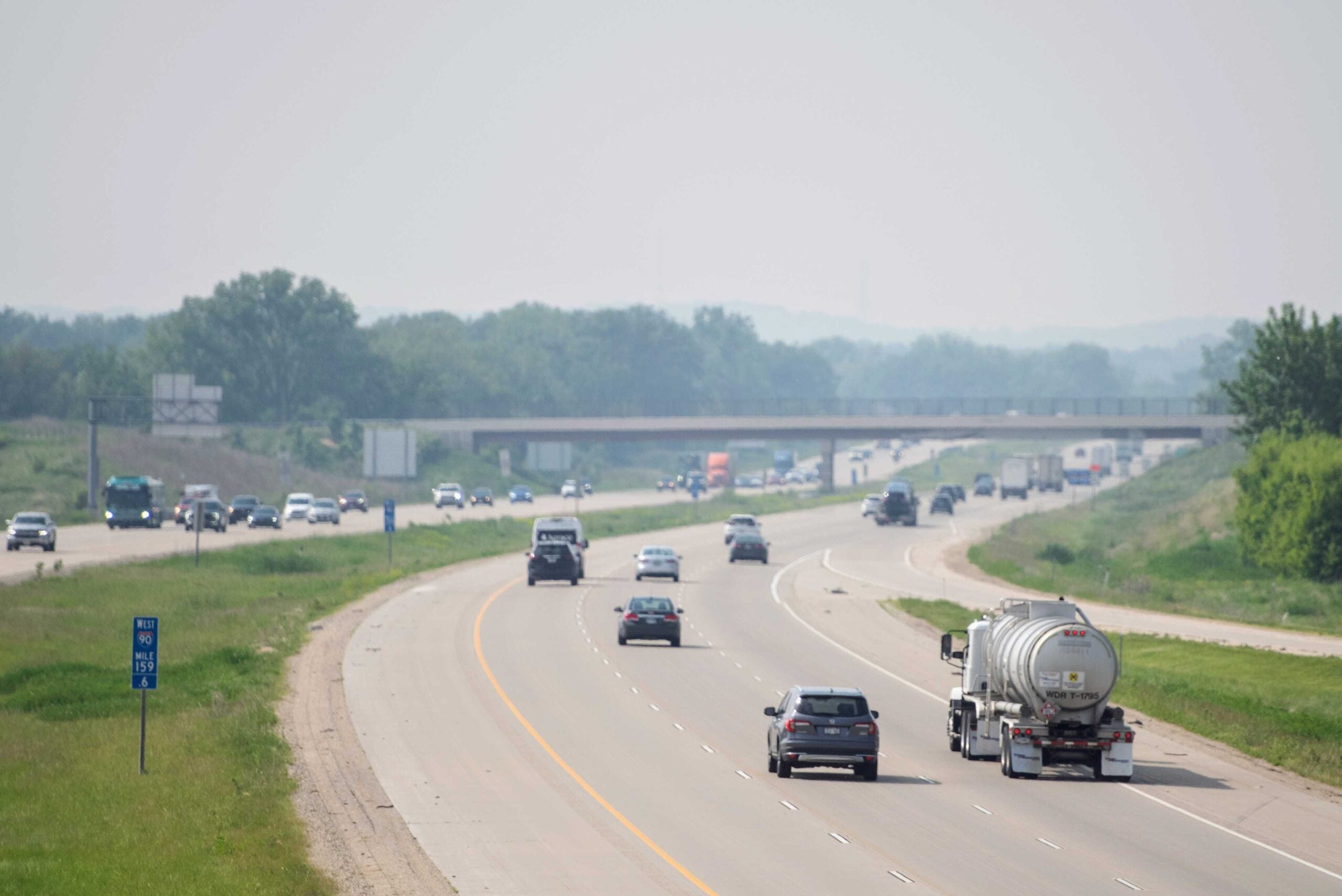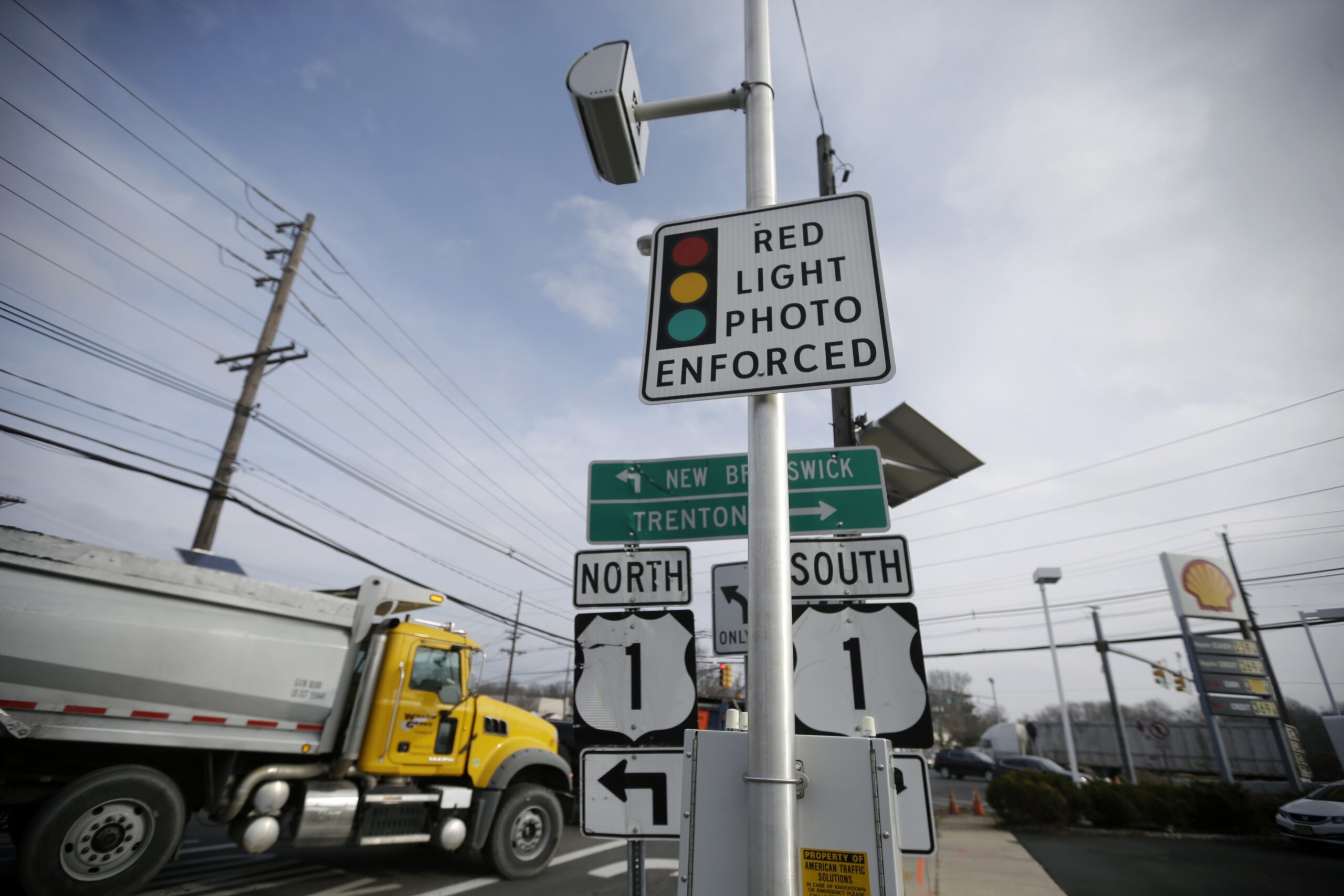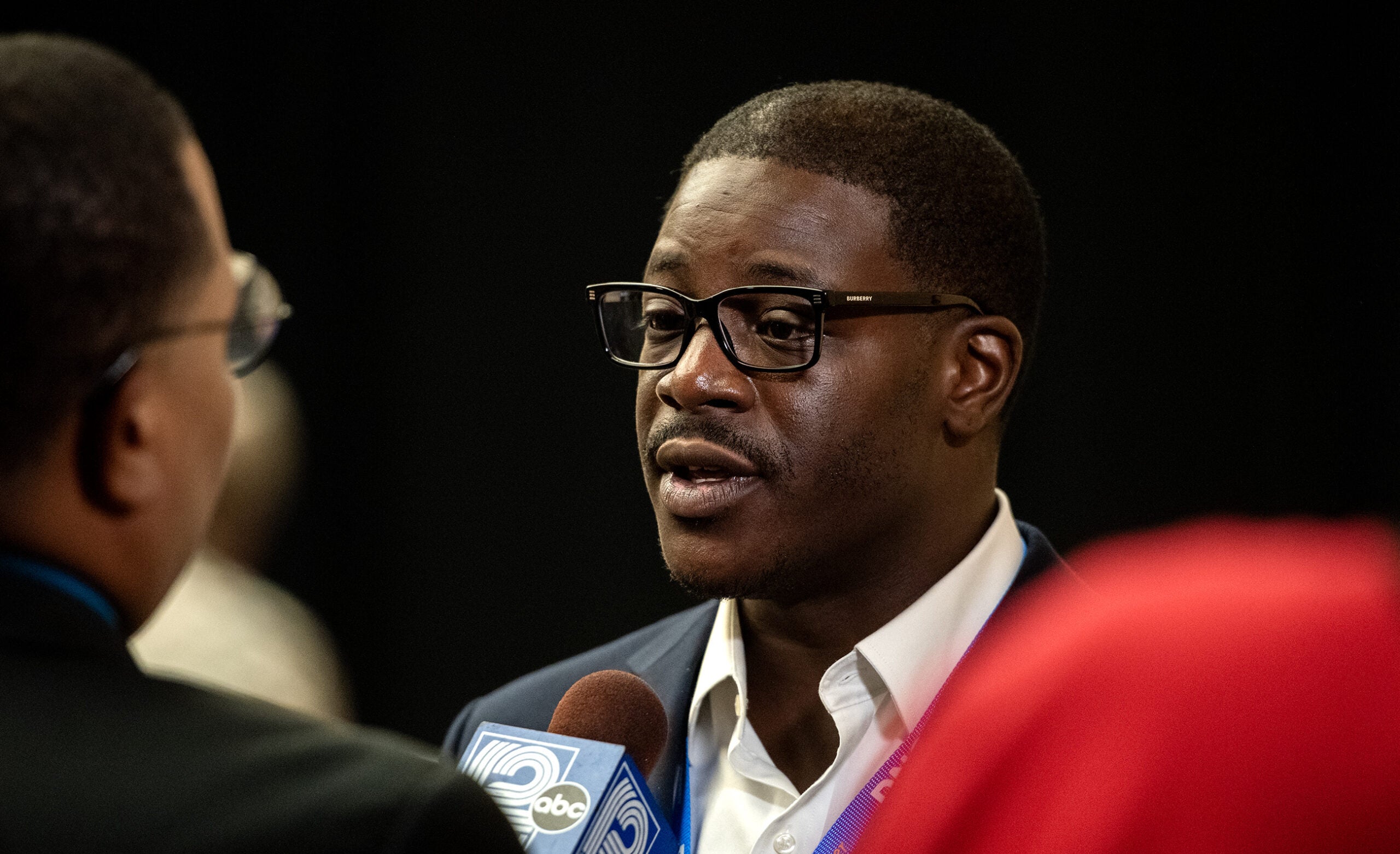Questions over how to address Milwaukee’s financial challenges were at the center of a public hearing Tuesday on a bill now in the Wisconsin Senate that would overhaul the way the state shares funding with local communities.
Milwaukee’s mayor, its common council president and the Milwaukee County executive were among those who visited the Capitol to ask lawmakers for help in the Republican-authored bill, which would increase funding for every community in the state.
Key to that proposal for the city is a provision that would let Milwaukee and Milwaukee County raise their sales taxes to retire old pension debt and prevent police and firefighter layoffs.
News with a little more humanity
WPR’s “Wisconsin Today” newsletter keeps you connected to the state you love without feeling overwhelmed. No paywall. No agenda. No corporate filter.
Without additional funding, Milwaukee Mayor Cavalier Johnson testified that the city will face insolvency.
That will “harm quality of life in the city of Milwaukee. It’ll reduce basic city services to unacceptable levels” for residents, commuting workers, tourists and business interests, Johnson said.
Leaders from smaller cities and rural communities were also present to say the costs of providing public services, like firefighting and EMS, have grown significantly, even beyond inflation. Many said they will struggle to fund those services, or maintain their quality, without state aid.
The hearing comes days after Republican leaders in the state’s two chambers sparred over certain elements of the bill, threatening the legislation’s odds of final passage.
Local and state leaders have been working for months on the plan that would boost what is commonly referred to as shared revenue in Wisconsin. Republican lawmakers and Democratic Gov. Tony Evers support using 20 percent of the state’s sales tax to fund a dedicated pot of money for local communities.
But Evers and Republicans have been at odds over many other details, leading the governor to threaten to veto the GOP plan. The state Assembly has since made additional changes to that original bill, but senators have yet to endorse those modifications.
On Tuesday, Jerry Deschane, the director of the League of Wisconsin Municipalities, urged lawmakers to take decisive action.
“You’re going to hear a lot of different ideas about ways we could make this better, or tweak that formula. But the one thing I think I am willing to bet you will not hear today is someone say, Do nothing,’” Deschane said. “I think the very worst thing this Legislature and our coalition could do would be not to bring this to a successful conclusion.”
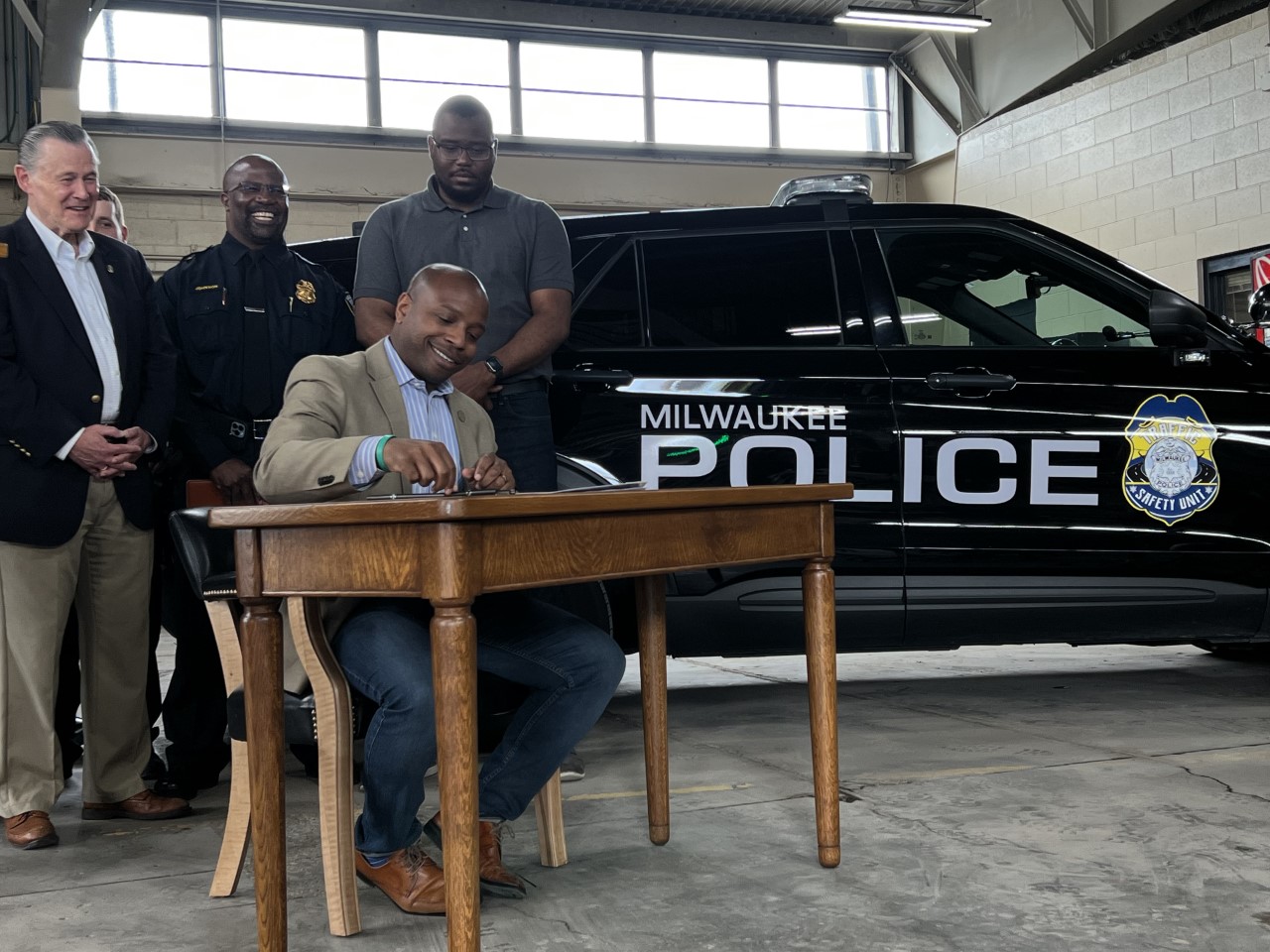
Milwaukee leaders call for more aid, fewer strings
Tying local government funding to the state’s sales tax “allows communities to grow and benefit as the state grows and benefits,” said Rep. Tony Kurtz, R-Wonewoc, an author of the Assembly’s version of the bill.
Under all GOP versions of the plan introduced so far, the state would increase its contributions to every local government across the state. In the Assembly version of the plan, most communities would see at least a 15 percent increase with the notable exception of Milwaukee, which would see a 10 percent increase. Some small and rural communities would see their state funding go up by several hundred percent.
The funding would be earmarked for police, firefighters, emergency medical services and transportation.
Sen. Mary Felzkowski, R-Irma, who co-authored the bill, said it will “close the gap” in funding between large and small communities by changing how the money is divided.
She also said that tying local funding to the sales tax would “directly plug our communities into the economy” and give communities, particularly the city of Milwaukee, “the tools to solve their own issues.”
Local government leaders across the state have backed the bill, including some from Milwaukee. On Tuesday, Milwaukee officials said they supported some elements of the bill, but pushed back against strings attached only to the Milwaukee dollars.
Those include requiring that Milwaukee maintain its current police and firefighting staffing levels and put police officers inside public schools.
“I want local elected officials to make decisions about purely local matters,” Johnson said. “When it comes to where police are deployed, or what sort of transportation options may exist, or how civilian oversight of the police department is structured, I ask that you leave those type of decisions in the hands of Milwaukee and not in Madison.”
But Johnson and other Milwaukee officials also stressed the dire financial straits Milwaukee faces. Johnson said the city is facing a $156 million hole in its budget.
Eric Daun, president of the Milwaukee Professional Firefighters Association, said that the city’s fire department has been “decimated” over 22 years, leaving the department with 51 vacancies.
Andrew Davis, of the Metropolitan Milwaukee Association of Commerce, said Milwaukee County’s pension obligations use up a third of city property tax revenue, even as the county has reduced staffing by nearly half.
Some other Democrats have said that cities, large and small, don’t receive enough under the bill.
Senator Mark Spreitzer, D-Beloit, said Tuesday that small cities, like Eau Claire, Appleton and Janesville, which he represents, “are kind of left behind,” and expressed hope that the cost-sharing formula could be rejiggered for them.
Meanwhile, representatives from smaller communities expressed gratitude for a plan that would significantly increase their share of the state aid, and some called for more.
Matt Bieser, an alder from the city of Delavan — a city of less than 9,000 people — said the costs of public services in his community have exploded.
“I’m very happy to see that this problem is being addressed today, and it’s being looked at in a serious nature,” Bieser said. “But I’m not sure it’s going to be nearly enough.”
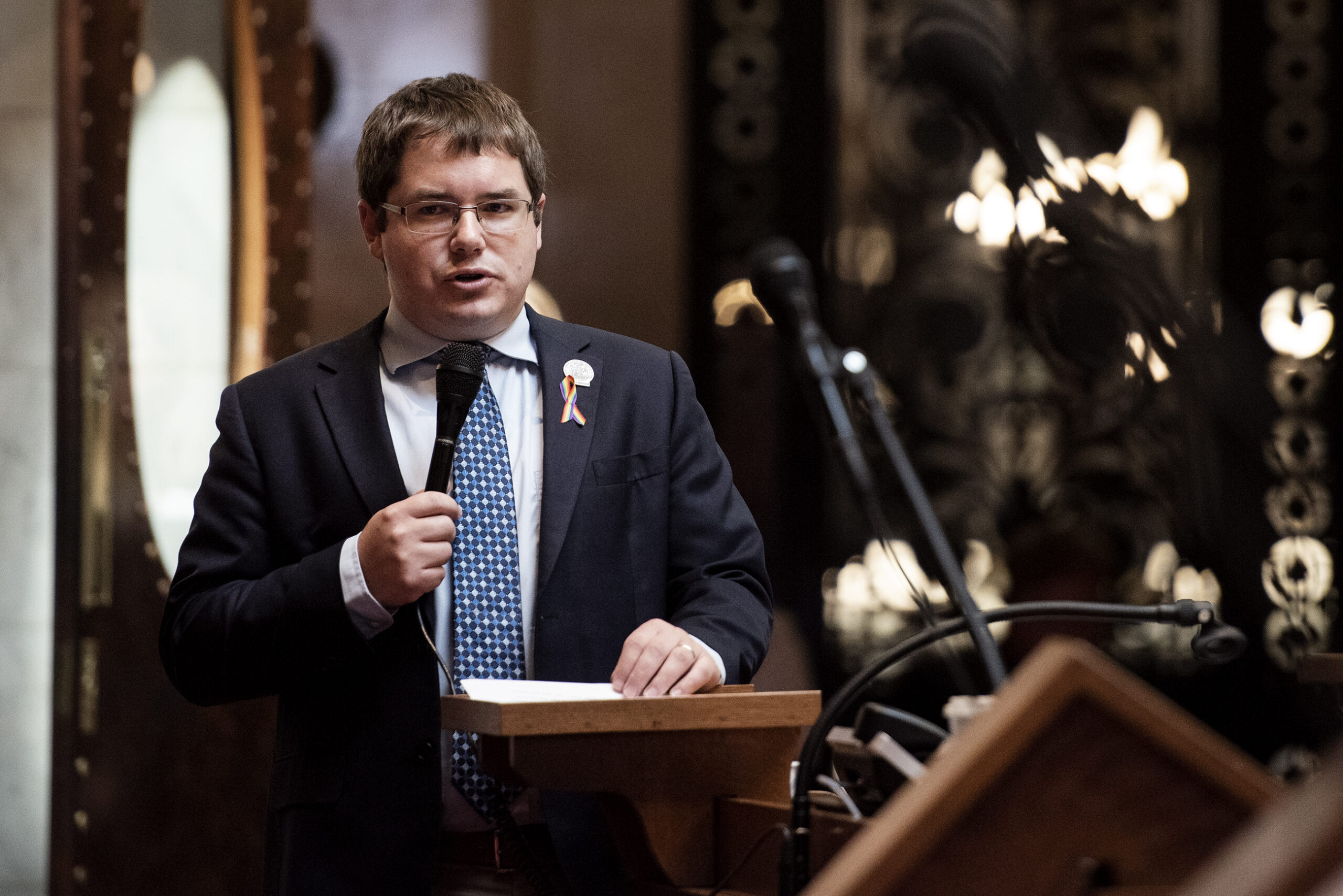
A voter referendum on Milwaukee’s sales tax is an open question
The legislation that passed the Assembly contained a provision that would allow both the city and county of Milwaukee to increase their sales tax rates. The city of Milwaukee would be allowed to levy a local sales tax of 2 percent, and Milwaukee County would be allowed to increase its local sales tax by 0.375 percent.
But the ability of those governments to do so would be contingent on voters approving the increases via two separate referendums.
Milwaukee leaders on Tuesday requested they be allowed to raise that sales tax on their own, via simple majority votes in the city’s Common Council and on the county board, with signoff from the mayor and county executive.
According to the Wisconsin Policy Forum, Milwaukee is unique among dozens of peer cities because it does not have a sales tax as a source of revenue, or other forms of tax revenue beyond its property tax.
“That has my city on the path to catastrophic budget cuts,” Johnson said.
Milwaukee County Executive David Crowley and Milwaukee County Board Chair Marcelia Nicholson each testified they believe city and county bodies would approve the tax increase on their own. Crowley said requiring a referendum would be logistically difficult and expensive for the 19 municipalities in Milwaukee County.
“Referendum would require a lot more work and really explain to them why we’re asking for those dollars,” he said. But, he added, “Whether this goes to referendum or through legislative body, we’d welcome that as well.”
Republican leadership in the state Senate and Assembly have diverged on the question of whether voters should weigh in on the tax. Last week, Senate Majority Leader Devin LeMahieu, R-Oostburg, said Senate Republicans were likely to remove that referendum requirement. Assembly Speaker Robin Vos, R-Rochester, warned that could kill the bill.
Evers originally included a referendum requirement in his local government proposal, but his office has since expressed support for allowing the sales tax increases without first asking voters.
On Tuesday, Felzkowski said the referendum question is “part of a negotiation process that’s happening.”
The bill passed out of the Assembly last week with no Democratic support. Vos said at the time that his caucus is “done negotiating.” A spokesperson for Evers said at the time that he planned to continue working with lawmakers on a deal. And Senate leaders on Tuesday suggested they are still at work on finalizing their own legislation.
Wisconsin Public Radio, © Copyright 2026, Board of Regents of the University of Wisconsin System and Wisconsin Educational Communications Board.
